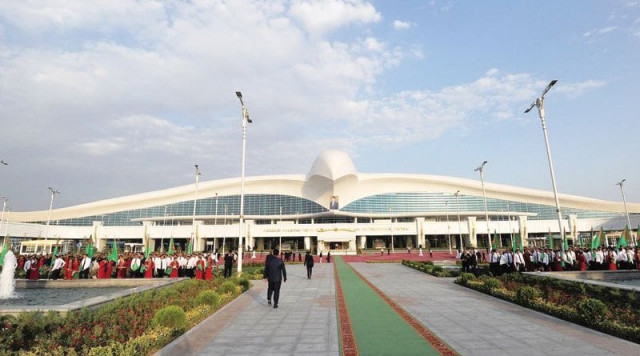Foreign companies queue up to sue cash-strapped Turkmenistan
Following energy price crash, foreign contractors started complaining about non-payments

Following energy price crash, foreign contractors started complaining about non-payments. PHOTO: ONLINE
Turkmenistan's economy had boomed until 2015, supported by high energy prices and gas exports, and the government awarded megaproject contracts for new factories and highways.
After energy prices crashed and Russia, one of the two main gas buyers, halted all purchases from Turkmenistan, foreign contractors started complaining about non-payments.
Now, some are taking the government of President Kurbanguly Berdymukhamedov to arbitration in an attempt to collect money they say is owed to them by the nation of six million people.
Turkmenistan completes its section of TAPI pipeline
Turkmenistan's foreign ministry, which handles media relations on behalf of the government, did not reply to requests for comment on the lawsuits.
Persistent foreign currency shortages, caused by a drop in export revenue, have prompted many international businesses, which had previously flocked to Ashgabat, to stay away.
The official exchange rate of the Turkmen manat is 3.5 per dollar. On the black market - the only place where one can realistically buy foreign currency - the greenback trades at 18.6 manat per dollar.
Although small and short-term, the Gazprom deal could be a sign larger sales may be negotiated that will provide badly needed hard currency to purchase equipment and material for Turkmenistan's industrial megaprojects.
Potassium predicament
Belgorkhimprom, a state-owned company from fellow autocratic ex-Soviet republic Belarus - the world's third-biggest producer of potash fertiliser - said last month it had filed a lawsuit for more than $150 million against Turkmenistan. Belgorkhimprom said in a statement Ashgabat had failed to pay in full for the construction of the Garlyk potash factory completed in 2017 and seized equipment worth over $7 million.
PM Abbasi arrives in Turkmenistan for ground-breaking ceremony of TAPI project
Turkmenistan, in turn, has filed its own lawsuit to the same arbitration institute in Stockholm, accusing the Belarussian firm of not meeting its contract obligations, according to government statements.
The factory which was supposed to help diversify Turkmen exports produced just 2.3% of the planned volume in the first nine months of 2018 and both sides blame each other for the failure to reach the designed capacity.
A Belarussian government source said Minsk believed Ashgabat's actions reflected its financial situation.



















COMMENTS
Comments are moderated and generally will be posted if they are on-topic and not abusive.
For more information, please see our Comments FAQ